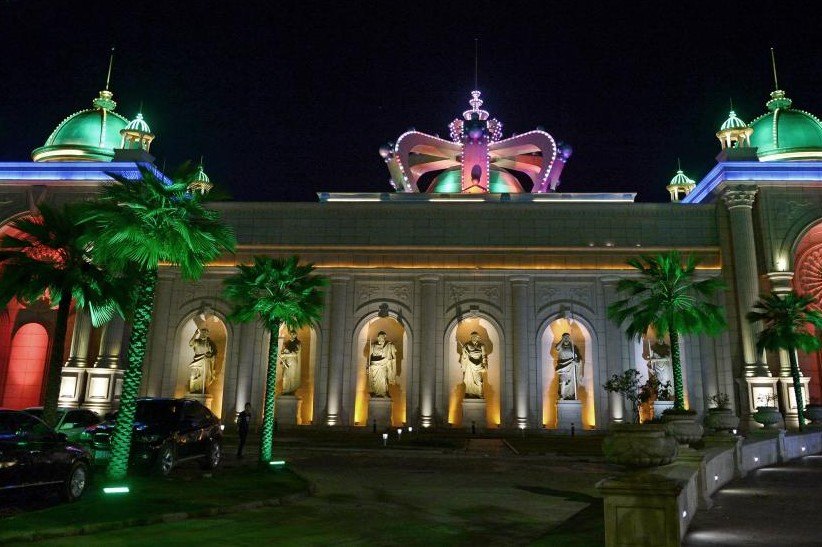Myanmar Burmese Leaders Push to Eradicate Gambling Prohibition, Allowing for Foreigner-Only Casino Expansion
Posted on: August 24, 2018, 10:00h.
Last updated on: August 24, 2018, 10:06h.
Lawmakers in Myanmar — the country formerly known as Burma in Southeast Asia that’s bordered by India, Laos, Thailand, and China with a population of 51.4 million — have submitted a new bill which would pave the way for the first foreigner-only casinos in the country.

The Myanmar Public Affairs Management Committee (MPAMC) presented the 2018 Gambling Bill to legislators this week. It calls for amendments to the 1986 Gambling Act, which has officially prohibited any casino gaming in the country up until now.
The bill will now be examined by a lower branch of the country’s legislature know as the Pyithu Hluttaw. Assuming it meets with the approval of government officials, Myanmar could soon join some of its Southeast Asian neighbors in offering casino options to tourists.
“Only foreigners will be allowed into the casinos,” legislator U Aung Hlaing Win told the Myanmar Times. “As such, the government will target areas with the most foreigners, such as near the border.”
That may prove to be a tricky proposition: tourism numbers remain fairly low in such a densely populated country, with some figures indicating only 270,000 tourists annually travel to Myanmar.
But that’s not stopping Win, who says with the country running large annual deficits, there’s no time to waste in getting the bill moving.
Rising Debt, Falling Dollar
Myanmar announced it was considering opening casinos for the first time earlier this year, and the new bill marks the first significant step forward since then.
It’s no coincidence that the change in attitude towards gambling comes at a time when Myanmar’s currency is plummeting. The kyat has lost 12 percent of its value against the US dollar since May.
Win holds onto the fact out that the budget surplus in the Asian gaming capital of Macau is five times bigger than Mynamar’s current debt, which is a deficit expected to hit USD $3.2 billion this year. Officials are upfront about their reasons for wanting to get in on the gaming windfall, although they may not be entirely realistic in their goals.
“The passing of the 2018 Gambling Law will enable a whole new sector to flourish and draw much-needed taxes and foreign currency into the country,” he told the Myanmar Times.
The casinos would likely be located on the country’s borders with China and Thailand, two countries, conceptually at least, with plenty of gambling tourists.
Myanmar lower tourist count compared to neighboring countries can be at least in part attributed to political unrest and insurgent uprisings, including one specifically targeted at a casino as recently as this past May
Latest Domino
The development marks another significant step forward for a region which has seen sweeping changes in attitudes towards gaming in recent years.
Cambodia has long pushed to be a top casino destination in Southeast Asia, and lawmakers there are soon expected to pass reforms which would create more casinos, while also reducing the amount of tax those facilities have to pay.
Vietnam is making major strides as well. Not only has it opened foreigner-only casinos in recent years, but policy changes made late last year now allow locals to play also.
Don’t expect Thailand to jump in the gaming pool anytime soon, though. The country that remains the biggest tourist draw in the region has no plans to legalize casinos any time soon.
Related News Articles
Most Popular
LOST VEGAS: The Foster Brooks Robot at MGM Grand
Bally’s Sets Date for Tropicana Las Vegas Implosion & Party
Most Commented
-
VEGAS MYTHS RE-BUSTED: You Don’t Have to Pay Resort Fees
— August 2, 2024 — 16 Comments -
VEGAS MYTHS RE-BUSTED: Elvis Was a Straight-Up Racist
— August 9, 2024 — 11 Comments -
ANTI-SOCIAL BEHAVIOR: Vegas Casino Buffet Stunt in Poor Taste Goes Viral
— August 16, 2024 — 7 Comments -
VEGAS MYTHS RE-BUSTED: The Strip Tried Appealing to Families and Failed
— August 23, 2024 — 7 Comments
















No comments yet